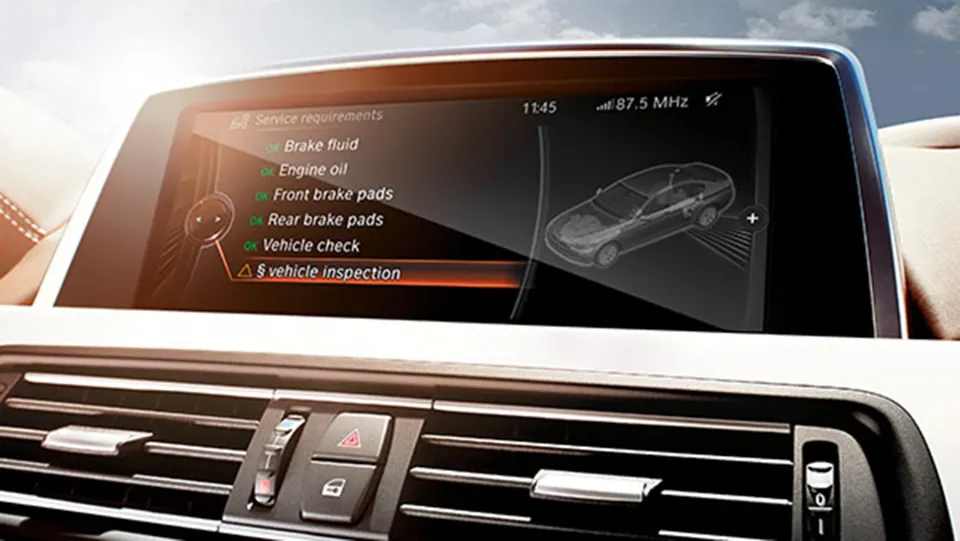Alphabet is urging more manufacturers to share vehicle maintenance-related data with leasing companies, following the successful launch of its Teleservices initiative with BMW UK earlier this year.
Since January, when Alphabet and its BMW parent began trialling data sharing, the leasing company has received more than 13,200 service maintenance repair (SMR) data alerts for its BMW- and Mini-maintained vehicles, enabling it to take a proactive approach, and use preferred repairers.
“Data is provided by the manufacturer which enables us to capture the servicing that is required on those vehicles, to liaise with the customer and steer the customer down the channel that we see fit, be that to the BMW or Mini network for repair, be that to an independent network or be that to a fast fit,” said Kit Wisdom, head of technical services at Alphabet, who was speaking at the International Auto Finance Network (IAFN) conference.
Wisdom said that in some cases Alphabet is aware of a maintenance issue, such as engine oil being due for replacement, before the company car driver sees a message in their vehicle.
Alphabet is also aware when the next service is due and when brakes are expected to be required based on usage of that vehicle, meaning it can contact the driver or fleet manager to get the vehicle booked in.
“Customer feedback is very positive,” Wisdom said. “For us to say ‘we know your brake fluid needs to be changed’ or ‘we know that your brake pads in the front need to be changed, we can book that in for you next week’, it’s a ‘wow’ moment for the customer. It has been really powerful.”
For fleet managers this proactive approach can help avoid neglected service warning lights or unexpected maintenance issues and help reduce downtime.
The latest phase of Teleservices has seen Alphabet representatives gain access to BMW service centres’ online service booking systems so they can view real-time workshop availability and book a service slot while the customer is on the phone.
Rather than there being numerous emails and/or phone calls between the driver, the leasing company and the servicing garage, which could take three to four hours, a vehicle can be booked in within three to four minutes.
“In terms of service booking, from January we’ve had an increase of 110% of us making bookings,” Wisdom said.
Proactively contacting customers whose vehicle requires a service has also resulted in an increase in drivers taking up the 90-minute ‘While You Wait’ servicing option.
Alphabet is now having discussions with other manufacturers so it can expand Teleservices to its entire maintained fleet, not just BMW and Mini vehicles with maintenance contracts.
“We’re looking to reach out to other manufacturers; this isn’t BMW specific,” Wisdom said. “Alphabet is a multi-marque leasing company. BMW is only part of our fleet and that’s why, for me, the other manufacturers coming on stream is critical.”
He added: “We’ve just initiated our discussions with other manufacturers. It’s going to take us a good 12 to 18 months to get some traction.”
Wisdom is expecting “some challenges” with other manufacturers as some have developed their telematics and the collection of data for retail customers rather than fleets, which can make it difficult for them to share data.
He also acknowledged that “everyone wants to control ” as “data is power”.
The debate over ‘who owns the data’ and should have access to it continues to rumble on in the industry.
However, Alphabet and BMW UK have not had any data protection issues with collecting SMR data as it is vehicle-related data rather than personal data, Wisdom said.
The next step, after SMR data feeds, is having vehicle mileage data from every manufacturer.
“For the leasing industry, clean mileage is the holy grail in terms of us managing our contracts effectively and managing our customer base properly,” Wisdom said.
He added: “We could do an awful lot of things if we had clean mileage on a daily, weekly or even monthly basis.
"It allows us to forecast better. It allows us to ensure we’re billing the customer for the appropriate amount rather than there being a big invoice at the end of the contract potentially because they’ve gone over mileage. Mileage is a key one for us in the industry.”

















Login to comment
Comments
No comments have been made yet.